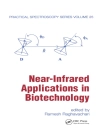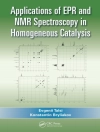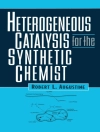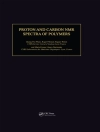The latest volume in the Advanced Biotechnology series provides an overview of the main production hosts and platform organisms used today as well as promising future cell factories in a two volume book. Alongside describing tools for genetic and metabolic engineering for strain improvement, the authors also impart topical information on computational tools, safety aspects and industrial-scale production.
Following an introduction to general concepts, historical developments and future technologies, the text goes on to cover multi-purpose bacterial cell factories, including those organisms that exploit anaerobic biosynthetic power. Further chapters deal with microbes used for the production of high-value natural compounds and those obtained from alternative raw material sources, concluding with eukaryotic workhorses.
Tabela de Conteúdo
List of Contributors XVII
About the Series Editors XXIX
Preface XXXI
Part I Industrial Biotechnology: From Pioneers to Visionary 1
1 History of Industrial Biotechnology 3
Arnold L. Demain, Erick J. Vandamme, John Collins, and Klaus Buchholz
1.1 The Beginning of Industrial Microbiology 3
1.2 Primary Metabolites and Enzymes 7
1.3 The Antibiotic Era 16
1.4 The Biotechnology Era Between 1970 and 2015 27
1.5 How Pioneering Developments Led to Genetic Engineering 48
References 73
2 Synthetic Biology: An Emerging Approach for Strain Engineering 85
Jie Sun and Hal Alper
2.1 Introduction 85
2.2 Basic Elements 86
2.3 Functional and Robust Modules 96
2.4 Microbial Communities 102
2.5 Conclusions and Future Prospects 104
Acknowledgments 104
References 104
3 Toward Genome-Scale Metabolic Pathway Analysis 111
Jürgen Zanghellini, Matthias P. Gerstl, Michael Hanscho, Govind Nair, Georg Regensburger, Stefan Müller, and Christian Jungreuthmayer
3.1 Introduction 111
3.2 DD Method 114
3.3 Calculating Short EFMs in Genome-Scale Metabolic Networks 116
3.4 Conclusions 120
Acknowledgments 121
References 121
4 Cell-Free Synthetic Systems for Metabolic Engineering and Biosynthetic Pathway Prototyping 125
Ashty S. Karim, Quentin M. Dudley, and Michael C. Jewett
4.1 Introduction 125
4.2 Background 127
4.3 The Benefits of Cell-Free Systems 129
4.4 Challenges and Opportunities in Cell-Free Systems 135
4.5 Recent Advances 140
4.6 Summary 141
Acknowledgments 141
References 142
Part II Multipurpose Bacterial Cell Factories 149
5 Industrial Biotechnology: Escherichia coli as a Host 151
Matthew Theisen and James C. Liao
5.1 Introduction 151
5.2 E. coli Products 152
5.3 Rewiring Central Metabolism 165
5.4 Alternative Carbon Sources 167
5.5 E. coli Techniques and Concerns 169
5.6 Conclusions 170
References 171
6 Industrial Microorganisms: Corynebacterium glutamicum 183
Judith Becker and Christoph Wittmann
6.1 Introduction 183
6.2 Physiology and Metabolism 185
6.3 Genetic Manipulation of Corynebacterium glutamicum 192
6.4 Systems Biology of Corynebacterium glutamicum 196
6.5 Application in Biotechnology 200
6.6 Conclusions and Perspectives 202
References 203
7 Host Organisms: Bacillus subtilis 221
Hans-Peter Hohmann, Jan M. van Dijl, Laxmi Krishnappa, and Zoltán Prágai
7.1 Introduction and Scope 221
7.2 Identification of Genetic Traits Pertinent to Enhanced Biosynthesis of a Value Product 222
7.3 Traits to Be Engineered for Enhanced Synthesis and Secretion of Proteinaceous Products 225
7.4 Engineering of Genetic Traits in Bacillus subtilis 231
7.5 Genome Reduction 245
7.6 Significance of Classical Strain Improvement in Times of Synthetic Biology 247
7.7 Resource-Efficient B. subtilis Fermentation Processes 252
7.8 Safety of Bacillus subtilis 254
7.9 Bacillus Production Strains on the Factory Floor: Some Examples 258
Acknowledgments 280
References 280
8 Host Organism: Pseudomonas putida 299
Ignacio Poblete-Castro, José M. Borrero-de Acuña, Pablo I. Nikel, Michael Kohlstedt, and Christoph Wittmann
8.1 Introduction 299
8.2 Physiology and Metabolism 300
8.3 Genetic Manipulation 304
8.4 Systems Biology 307
8.5 Application in Biotechnology 311
8.6 Future Outlook 315
References 315
Part III Exploiting Anaerobic Biosynthetic Power 327
9 Host Organisms: Clostridium acetobutylicum/Clostridium beijerinckii and Related Organisms 329
Frank R. Bengelsdorf, Anja Poehlein, Stefanie K. Flitsch, Sonja Linder, Bettina Schiel-Bengelsdorf, Benjamin A. Stegmann, Preben Krabben, Edward Green, Ying Zhang, Nigel Minton, and Peter Dürre
9.1 Introduction 329
9.2 Microorganisms 330
9.3 Bacteriophages 332
9.4 ABE Fermentation of Solvent-Producing Clostridium Strains 336
9.5 Genome-Based Comparison of Solvent-Producing Clostridium Strains 342
9.6 Regulation of Solvent Formation in C. acetobutylicum 345
9.7 Genetic Tools for Clostridial Species 346
9.8 Industrial Application of ABE Fermentation 353
Acknowledgments 355
References 355
10 Advances in Consolidated Bioprocessing Using Clostridium thermocellum and Thermoanaerobacter saccharolyticum 365
Lee R. Lynd, Adam M. Guss, Michael E. Himmel, Dhananjay Beri, Chris Herring, Evert K. Holwerda, Sean J. Murphy, Daniel G. Olson, Julie Paye, Thomas Rydzak, Xiongjun Shao, Liang Tian, and Robert Worthen
10.1 Introduction 365
10.2 CBP Organism Development Strategies 366
10.3 Plant Cell Wall Solubilization by C. thermocellum 367
10.4 Bioenergetics of C. thermocellum Cellulose Fermentation 372
10.5 Metabolic Engineering 378
10.6 Summary and Future Directions 386
Acknowledgments 388
References 388
11 Lactic Acid Bacteria 395
Luciana Ruiz-Rodríguez, Juliana Bleckwedel, Maria Eugenia Ortiz, Micaela Pescuma, and Fernanda Mozzi
11.1 Introduction 395
11.2 Fermented Foods 398
11.3 Industrially Relevant Compounds 406
11.4 Conclusions 434
Conflict of Interest 435
References 435
Contents to Volume 2
List of Contributors XV
About the Series Editors XXVII
Preface XXIX
Part IV Microbial Treasure Chests for High-Value Natural Compounds 453
12 Host Organisms: Myxobacterium 455
Silke C. Wenzel and Rolf Müller
13 Host Organism: Streptomyces 487
Oksana Bilyk and Andriy Luzhetskyy
Part V Extending the Raw Material Basis for Bioproduction 505
14 Extreme Thermophiles as Metabolic Engineering Platforms: Strategies and Current Perspective 507
Andrew J. Loder, Benjamin M. Zeldes, Jonathan M. Conway, James A. Counts, Christopher T. Straub, Piyum A. Khatibi, Laura L. Lee, Nicholas P. Vitko, Matthew W. Keller, Amanda M. Rhaesa, Gabe M. Rubinstein, Israel M. Scott, Gina L. Lipscomb, Michael W.W. Adams, and Robert M. Kelly
15 Cyanobacteria as a Host Organism 581
Fabienne Duchoud, Derrick S.W. Chuang, and James C. Liao
16 Host Organisms: Algae 605
Elizabeth A. Specht, Prema S. Karunanithi, Javier A. Gimpel, William S. Ansari, and Stephen P. Mayfield
Part VI Eukaryotic Workhorses: Complex Cells Enable Complex Products 643
17 Host Organisms: Mammalian Cells 645
Jennifer Pfizenmaier and Ralf Takors
18 Industrial Microorganisms: Saccharomyces cerevisiae and other Yeasts 673
Diethard Mattanovich, Brigitte Gasser, Michael Egermeier, Hans Marx, and Michael Sauer
19 Industrial Microorganisms: Pichia pastoris 687
Diethard Mattanovich, Michael Sauer, and Brigitte Gasser
Index 715
Sobre o autor
Christoph Wittmann is Director of the Institute of Systems Biotechnology at Saarland University, Saarbrücken, Germany. Having obtained his academic degrees from Braunschweig Technical University, Germany, he was postdoc at Helsinki University, Finland, held chairs for Biotechnology at Münster University, Germany, and for Biochemical Engineering at Braunschweig Technical University and was invited guest professor at Université Rangueil de Toulouse, France, before taking up his present position. He has authored more than 150 scientific publications, more than 20 books and book chapters, holds more than 20 patents and has received several scientific awards, including the Young Scientist Award of the European Federation of Biotechnology, and is board member of various scientific journals.
James Liao is currently President of Academia Sinica in Taiwan. Having obtained his Ph D degree from University of Wisconsin, Madison, USA, he started his career at Eastman Kodak Company, before moving to Texas A&M, USA, and then to the University of California in Los Angeles (UCLA), USA, for his academic career. Professor Liao has received numerous scientific awards, including the US Presidential Green Chemistry Challenge Award and the Italian ENI award in renewable energy. He is also a member of the US National Academy of Sciences, National Academy of Engineering, and Academia Sinica in Taiwan.
Sang Yup Lee is Distinguished Professor at the Department of Chemical and Biomolecular Engineering at the Korea Advanced Institute of Science and Technology (KAIST). He is currently the Director of the Center for Systems and Synthetic Biotechnology, Director of the Bio Process Engineering Research Center, and Director of the Bioinformatics Research Center. He has published more than 500 journal papers, 64 books and book chapters, and more than 580 patents (either registered or applied). He received numerous awards, including the National Order of Merit, the Merck Metabolic Engineering Award, the ACS Marvin Johnson Award, Charles Thom Award, Amgen Biochemical Engineering Award, Elmer Gaden Award, POSCO TJ Park Prize, and Ho Am Prize. He currently is Fellow of American Association for the Advancement of Science, the American Academy of Microbiology, American Institute of Chemical Engineers, Society for Industrial Microbiology and Biotechnology, American Institute of Medical and Biological Engineering, the World Academy of Science, the Korean Academy of Science and Technology, and the National Academy of Engineering of Korea. He is also Foreign Member of National Academy of Engineering USA. He is currently honorary professor of the University of Queensland (Australia), honorary professor of the Chinese Academy of Sciences, honorary professor of Wuhan University (China), honorary professor of Hubei University of Technology (China), honorary professor of Beijing University of Chemical Technology (China), and advisory professor of the Shanghai Jiaotong University (China). Lee is the Editor-in-Chief of the Biotechnology Journal and Associate Editor and board member of numerous other journals. Lee is currently serving as a member of Presidential Advisory Committee on Science and Technology (Korea).
Jens Nielsen is Professor and Director to Chalmers University of Technology (Sweden) since 2008. He obtained an MSc degree in Chemical Engineering and a Ph D degree (1989) in Biochemical Engineering from the Technical University of Denmark (DTU) and after that established his independent research group and was appointed full Professor there in 1998. He was Fulbright visiting professor at MIT in 1995-1996. At DTU, he founded and directed the Center for Microbial Biotechnology. Jens Nielsen has published more than 350 research papers, co-authored more than 40 books and he is inventor of more than 50 patents. He has founded several companies that have raised more than 20 million in venture capital. He has received numerous Danish and international awards and is member of the Academy of Technical Sciences (Denmark), the National Academy of Engineering (USA), the Royal Danish Academy of Science and Letters, the American Institute for Medical and Biological Engineering and the Royal Swedish Academy of Engineering Sciences.
Professor Gregory Stephanopoulos is the W. H. Dow Professor of Chemical Engineering at the Massachusetts Institute of Technology (MIT, USA) and Director of the MIT Metabolic Engineering Laboratory. He is also Instructor of Bioengineering at Harvard Medical School (since 1997). He received his BS degree from the National Technical University of Athens and his Ph D from the University of Minnesota (USA). He has co-authored approximately 400 research papers and 50 patents, along with the first textbook on Metabolic Engineering. He has been recognized by numerous awards from the American Institute of Chemical Engineers (AICh E) (Wilhelm, Walker and Founders awards), American Chemical Society (ACS), Society of industrial Microbiology (SIM), BIO (Washington Carver Award), the John Fritz Medal of the American Association of Engineering Societies, and others. In 2003 he was elected member of the National Academy of Engineering (USA) and in 2014 President of AICh E.












